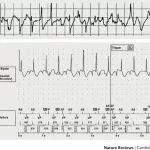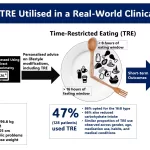TOPLINE:
New research indicates that quitting smoking at any age can significantly boost life expectancy. While younger individuals see the greatest benefits, even those over the age of 65 can still prolong their lives by quitting smoking.
METHODOLOGY:
The study analyzed the impact of smoking cessation on life expectancy for individuals aged 35 to 75 years. The researchers utilized data from the Cancer Prevention Study II, the 2018 National Health Interview Survey, and 2018 all-cause mortality rates to calculate age-specific death rates by smoking status. Life tables were constructed to compare life expectancies of never smokers, current smokers, and former smokers who quit at various ages. The years of life lost due to smoking and the years gained by quitting were estimated for individuals starting from age 35 and in 10-year increments thereafter.
FINDINGS:
- Smokers who continued smoking throughout their lives would lose 9.1, 8.3, 7.3, 5.9, and 4.4 years of life at ages 35, 45, 55, 65, and 75, respectively, compared to those who never smoked.
- Those who quit smoking at ages 35, 45, 55, 65, and 75 would have life expectancies shorter by 1.2, 2.7, 3.9, 4.2, and 3.7 years, respectively, than their never-smoking peers.
- Individuals who quit smoking at ages 35, 45, 55, 65, and 75 would gain an additional 8.0, 5.6, 3.4, 1.7, and 0.7 years of life, respectively, compared to those who continued smoking.
- People who quit at ages 65 and 75 had a 23.4% and 14.2% chance, respectively, of gaining at least one additional year of life.
IN PRACTICE:
“This cessation benefit is not limited to young and middle-aged adults who smoke; this study demonstrates its applicability to seniors as well. These findings may be valuable for clinicians seeking scientific evidence to motivate their patients who smoke to quit,” the authors wrote.
SOURCE:
The study was led by Thuy T.T. Le, PhD, from the Department of Health Management and Policy at the University of Michigan School of Public Health in Ann Arbor. It was published online on June 25 in the American Journal of Preventive Medicine.
LIMITATIONS:
The study’s estimates are based on data from 2018 and may not reflect current trends. Additionally, the estimates did not account for variability in smoking intensity among individuals.
DISCLOSURES:
The research was supported by grants from the National Cancer Institute of the US National Institutes of Health and the US Food and Drug Administration Center for Tobacco Products. The authors declared no conflicts of interest.











